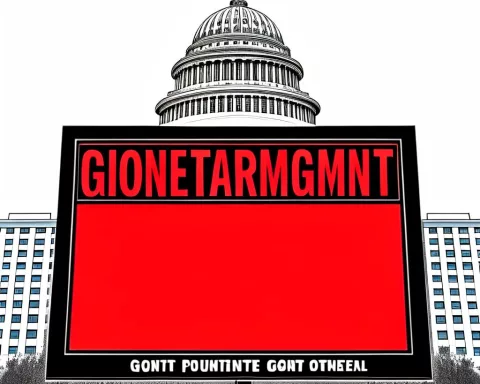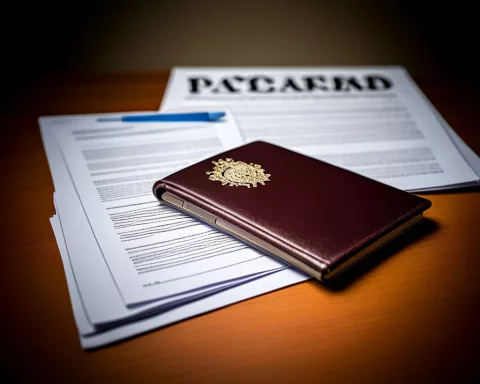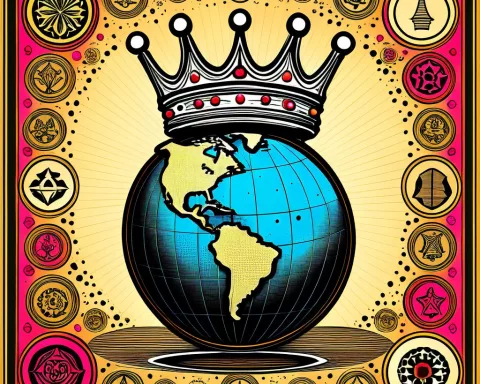Gasant Abarder’s satirical letter humorously asks for asylum from Bangladesh, poking fun at the struggles of middle-class life in South Africa. Using funny stories and sharp observations, he highlights the quirks of identity, the high costs of living, and the absurdities of societal norms. He dreams of cricket glory in Bangladesh while feeling overlooked at home, showing his longing for belonging. Through laughter, Abarder encourages us to reflect on our own lives and seek hope amid chaos, reminding us that humor can help us navigate life’s tricky paths.
What is Gasant Abarder’s satirical take on middle-class life and identity?
Gasant Abarder’s satirical letter humorously requests asylum from Bangladesh, reflecting his discontent with middle-class existence in South Africa. Through personal anecdotes and cultural connections, he critiques identity constructs, economic struggles, and the absurdities of societal norms, showcasing the power of humor in navigating life’s complexities.
Finding Sanctuary in Humor
Life’s relentless chaos often finds relief in humor, serving as a retreat for many. Gasant Abarder, through his witty #SliceofGasant column, excels at this art. He pens a satirical yet insightful letter to Bangladesh’s President, humorously crafting a plea for asylum. This is not driven by immediate danger but by a desire to escape the peculiarities of middle-class existence in South Africa. Through personal stories, sharp social critique, and whimsical touches, Abarder skillfully navigates the themes of identity, economic survival, and cultural connections.
In his appeal, Abarder begins by expressing genuine admiration for Bangladesh, with special mention of its dynamic cricket team, the Bengali Tigers. This isn’t a mere sports reference but a symbol of his longing for recognition and belonging. Cricket, steeped in colonial history, acts as a bridge from his current disenchantment to a hopeful future, demonstrating how sports transcend cultural and geographical divides. It’s a nod to the historical allegiances shaped across oceans, offering a glimpse into his quest for identity.
Abarder’s narrative takes a comedic twist by addressing the political climate under the leadership of Donald Trump. He imagines a scenario where South African Afrikaners face displacement due to their uneven land ownership. This exaggerated scenario shines a light on South Africa’s ongoing debates about land redistribution, reflecting its struggle with colonial and apartheid legacies. Through satire, Abarder poignantly highlights the absurdities of racial and economic disparities, urging readers to ponder justice and equity in a post-apartheid society.
Navigating Personal and Cultural Identity
Delving into his personal identity, Abarder enriches the narrative with humor and introspection. He traces his ancestry with comedic uncertainty, listing places like Malaysia, Batavia, Micronesia, Indonesia, and even India or Madagascar. This eclectic blend of heritage challenges rigid racial and ethnic classifications. By humorously questioning his own mixed lineage, he critiques the historical constructs of identity that have both limited and defined South Africans, illustrating the fluidity and diversity of contemporary identities.
The strains of middle-class life in Cape Town loom large in Abarder’s reflections. He paints a picture of the city’s escalating costs with irony, suggesting that it might be easier for the poor to live there than the middle class. Woolworths, representing consumer culture, becomes a metaphor for the financial traps many face, caught between aspirations and economic realities. This resonates with countless individuals worldwide grappling with the challenge of balancing a comfortable lifestyle against harsh financial landscapes prevalent in urban centers.
Despite the humor that permeates Abarder’s narrative, there lies a genuine yearning for change. He voices a sense of exclusion from the South African cricket team, lamenting that his talents remain unnoticed. This sentiment echoes the broader frustrations of many in South Africa who feel sidelined in various sectors despite their capabilities. By humorously positioning himself as a potential asset to Bangladesh’s cricket team, he critiques the persistent barriers to opportunity in his homeland.
Exploring Cultural Connections and Identity Fluidity
Abarder’s friendship with Hassan, a Bangladeshi shop owner, lends another layer to his exploration of cultural bonds and identity. Their camaraderie underscores the everyday connections that transcend national boundaries, highlighting the universal nature of human experiences. The ease with which Abarder contemplates changing his name from Gasant to Hassan underscores the malleability of identity in a globalized world, where personal and cultural intersections are increasingly common.
The narrative takes an intriguing turn with Abarder’s recollection of an encounter in Beijing, where African journalists mistakenly identify him as part of the infamous Gupta family involved in South Africa’s political scandals. This anecdote brings to light the complexities of racial identity and global perceptions, as Abarder navigates assumptions and stereotypes while asserting his true origins. It also reflects the interconnectedness of global issues, where identity becomes both a personal and geopolitical dialogue.
In Abarder’s satirical letter, there lies a deep commentary on the human condition. By juxtaposing humor with socio-political critique, he invites readers to reflect on their own lives, challenging them to find resilience and hope amid adversity. The letter ends with a light-hearted yet sincere request for asylum, encapsulating the universal yearning for belonging and the quest for a better life. Through his masterful use of satire and storytelling, Gasant Abarder offers more than just a comedic plea for asylum. He holds up a mirror to society, capturing its complexities and contradictions, while reminding us of the invaluable role humor and narrative play in navigating modern life’s challenges.
FAQ for “The Satirical Asylum: Gasant Abarder’s Middle-Class Musings”
What is the main theme of Gasant Abarder’s satirical letter?
Gasant Abarder’s satirical letter humorously requests asylum from Bangladesh, reflecting on the struggles of middle-class life in South Africa. Through personal anecdotes and cultural observations, he critiques identity constructs, economic challenges, and societal absurdities, using humor to navigate life’s complexities.
How does Abarder use humor to address serious topics?
Abarder employs humor as a tool to tackle serious issues such as identity, economic survival, and cultural connections. By crafting a satirical plea for asylum, he highlights the absurdities of life, offering readers a light-hearted yet poignant commentary on social norms, racial disparities, and the quest for belonging.
What role does cricket play in Abarder’s narrative?
Cricket serves as a significant symbol in Abarder’s narrative, representing his longing for recognition and belonging. He expresses admiration for Bangladesh’s cricket team, the Bengali Tigers, using the sport as a bridge to connect his discontent with middle-class life in South Africa to a hopeful future, showcasing how sports can transcend cultural divides.
How does Abarder address identity in his writing?
Abarder reflects on his personal identity with comedic uncertainty, humorously tracing his mixed ancestry and challenging rigid racial classifications. By questioning his own lineage, he critiques the historical constructs of identity that have shaped South African society, illustrating the fluidity and diversity of contemporary identities.
What critique does Abarder offer regarding the middle-class experience in South Africa?
Abarder critiques the struggles of middle-class life in Cape Town, emphasizing the rising costs of living and the financial traps of consumer culture. He suggests that it may be easier for the poor to live there than the middle class, resonating with many who grapple with the challenge of maintaining a comfortable lifestyle against harsh economic realities.
What message does Abarder convey through his satirical plea for asylum?
Through his satirical plea for asylum, Abarder encapsulates a universal yearning for belonging and a better life. His masterful use of satire and storytelling invites readers to reflect on their own lives, urging them to find resilience and hope amid adversity, while highlighting the invaluable role of humor in navigating the complexities of modern existence.












